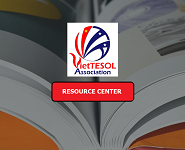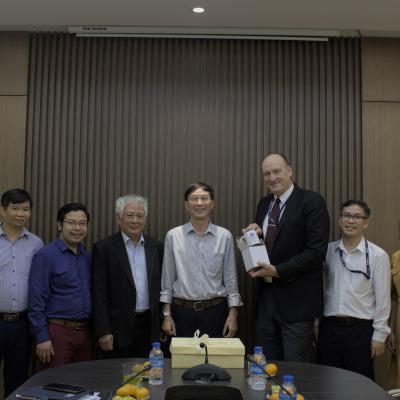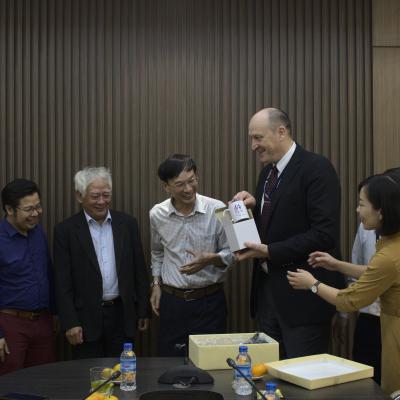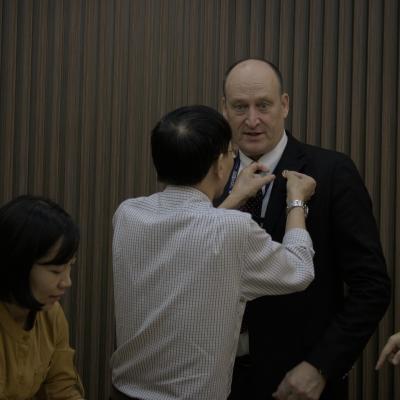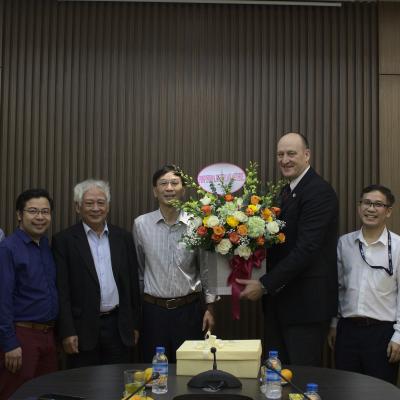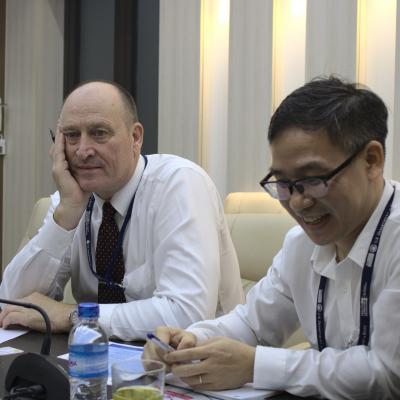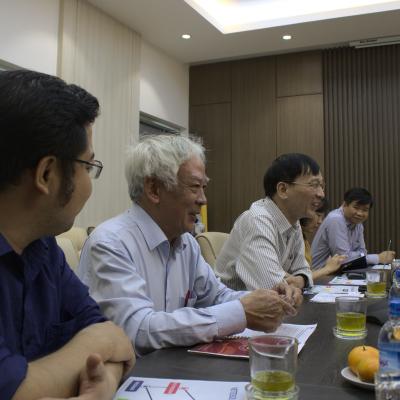VIETTESOL INTERNATIONAL CONVENTION 2024
English Language Education in the Age of Artificial Intelligence
Ho Chi Minh City, July 26-28, 2024
ABSTRACT SUBMISSION GUIDELINES
1. DETAILS OF PRESENTERS
Important details of the presenters such as full name, email address, and institution must be correctly entered into the submission system. The Convention only uses these details to communicate with the presenters. The presenters should also check their spam mail folder to ensure that the emails from the Convention are not missed. The presenters cannot appoint another one to deliver their presentations on their behalf. Only up to two proposal submissions are accepted by each author.
2. TITLE OF PRESENTATION
The title must:
● not exceed 15 words (each part of a slashed or hyphenated word counts as one word)
● not include presenter’s names, institutions, or titles of their published works
● capitalize all verbs, nouns, adjectives, adverbs, and pronouns
● not capitalize conjunctions, articles, and prepositions of fewer than four letters
● capitalize both terms of hyphenated compounds and the first word after a colon.
3. TYPES AND LENGTH OF A PRESENTATION
* Type and session length
● Keynote Speech (50 minutes): This is a plenary session. It aims to set out the convention scope, provide valuable insights, and create a sense of community among attendees. Only invited scholars can make submissions to this presentation type. Each keynote speech is delivered in 50 minutes, including 10 minutes for the Question and Answer section (Q&A).
● Featured Speech (50 minutes): This is a major parallel session. It aims to address a particular issue closely relevant to the theme of the convention. Only invited scholars can make submissions to this presentation type. Each featured speech is delivered in 50 minutes, including 15 minutes for Q&A.
● Oral Presentation (30 minutes): This is a parallel session, contributed by various scholars, researchers, and practitioners. It can be research-oriented, discussing the theoretical perspectives, methodological paradigms, and findings of a study. It can also be practice-oriented, discussing a pedagogical practice or a teaching approach. Each oral presentation is delivered in 30 minutes, including 10 minutes for Q&A.
● Workshop (60 minutes): This is a parallel session, contributed by various scholars, researchers, and practitioners. It aims to demonstrate a teaching initiative or innovation for about 15 minutes before delivering a hand-on activity (activities) that can engage the participants to share, discuss, and produce some specific output. The activities might be a discussion about a heated topic, a simulation, a lesson plan designing attempt, a material development technique, a task design strategy, an action plan drafting process, or alike.
● Poster (45 minutes): This is a parallel session conducted in the poster presentation area. It aims to serve as an important and interactive forum for sharing professional ideas and for receiving feedback. It is often contributed by practitioners and early-career researchers. A poster presentation is a visually explanatory exhibit that allows for short, informal discussions between the presenter(s) and participants. The poster presentation session is flexibly delivered in 45 minutes, depending on the audience.
● Technology Fair (45 minutes per PC): This is a parallel session conducted in a designated technology-equipped area. It can be delivered at any time during the convention to cater to the diverse needs of the audience about classroom-based learning, mobile learning, or self- access learning. Each participant or group of participants is expected to experience a demonstration session up to 45 minutes only. The presenters are stationed in the computer lab space and the audience will ask questions and get hands-on experiences.
● Doctoral Forum Presentation (30 minutes): This is a specific group of interactive presentations for research students to share and discuss their own research ideas and projects with each other and with experienced educators and senior researchers. The presenters are expected to be postgraduate students currently or have completed their postgraduate programs within 6 months. Each presentation is delivered in 30 minutes, including 10 minutes for Q&A.
4. ABSTRACT
Accepted abstracts are included in the Convention Book. They must accurately reflect the content of the presentations. Each abstract must be between 150-250 words. The abstract must
● accurately reflect what the presentation is to be about
● not exceed 250 words
● not include presenters’ names, institutions, or published works
● not include acronym(s) or abbreviation(s) except the following:
▪ L1 (First Language)
▪ L2 (Second Language)
▪ CALL (Computer Assisted Language Learning)
▪ CBI (Content-based Instruction)
▪ EAP (English for Academic Purposes)
▪ EFL (English as a Foreign Language)
▪ EL (English Learner)
▪ ELL (English Language Learner)
▪ ELT (English Language Teaching)
▪ ESL (English as a Second Language)
▪ ESOL (English for Speakers of Other Languages)
▪ ESP (English for Specific Purposes)
▪ IEP (Intensive English Program)
▪ NNEST (Nonnative English Speakers in TESOL)
▪ SLA (Second Language Acquisition)
▪ TESOL (Teaching English to Speakers of Other Languages)
▪ TEFL (Teaching English as a Foreign Language)
5. EQUIPMENT
When submitting the proposals, the authors must include an equipment request if necessary. This will facilitate the process of facility preparation for their presentations.
6. IMPORTANT NOTES
● Proposals must be submitted online through the VietTESOL International Convention 2024 website at http://convention.viettesol.org.vn.
● All presenters, including co-presenters, must register for the convention.
● Proposal submissions must meet the deadline.
● All mandatory sections of the proposal submission form must be correctly completed. Incomplete submissions are not considered.
● Authors can only pay the convention fee after their proposals are reviewed and accepted.
● The Convention may request a change for the presentation type of some proposal to fit it well into the convention agenda.
7. PROPOSAL SELECTION CRITERIA
Each proposal is reviewed by at least two peer reviewers who have relevant expertise and training. The evaluation criteria are listed in the following table.
|
1 |
Format |
The title must not exceed 15 words. The abstract must be between 150 and 250 words. Session type, strand, and sub-theme must be selected. |
|
2 |
Relevance |
The proposal is current and relevant to the field and/or the theme of VietTESOL International Convention 2024. |
|
3 |
Theoretical, practical, and research ground |
The proposal refers to the specific theory, practice, and/or research on which the presentation is grounded. |
|
4 |
Practicality |
The proposal provides details of participant outcomes, sufficient evidence to support practices, conclusions, and recommendations. |
|
5 |
Clarity |
The proposal is clearly written, implying that the proposed presentation will be of good quality. |


